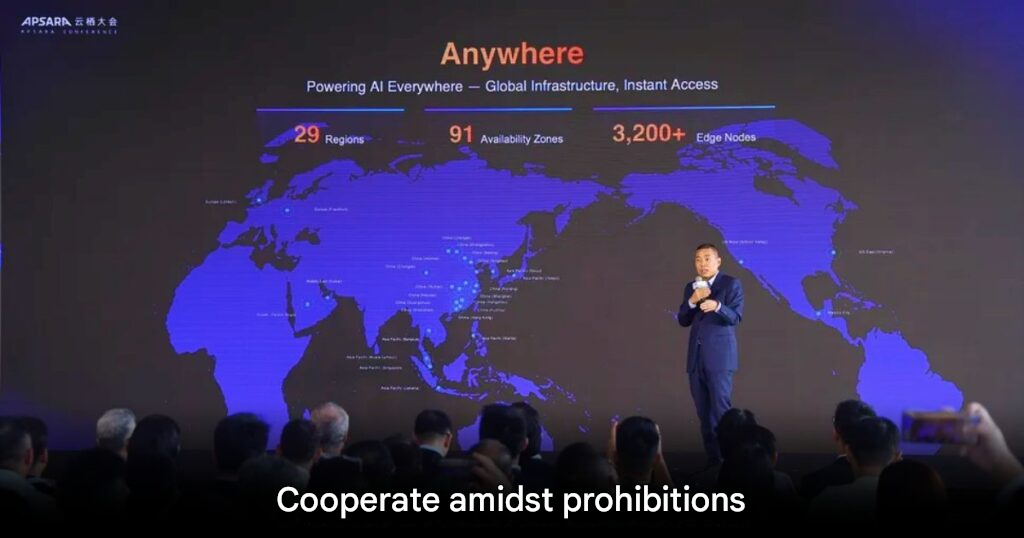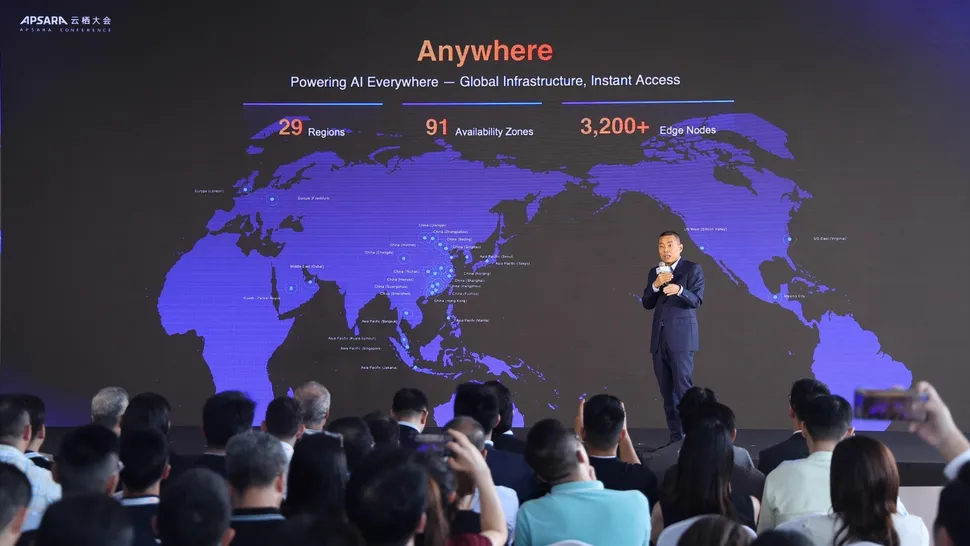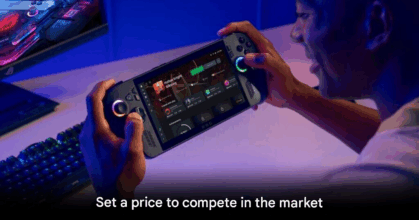Alibaba Partners with Nvidia to Power Global Physical AI Expansion

Expanding Global Reach and AI Capabilities
Alibaba, a major e-commerce and cloud computing company, has announced a new collaboration with Nvidia focused on scaling its data centers worldwide and introducing new AI products. This was revealed at the Apsara Conference 2025 where Alibaba emphasized AI as a core business alongside its online retail operations. Even though Beijing has issued restrictions on Chinese tech firms purchasing Nvidia chips, the exact terms regarding hardware acquisition remain unclear.
What the Collaboration Involves
Alibaba Cloud will incorporate the Nvidia Physical AI software stack into its Platform for AI (PAI). The goal is to build a cloud platform that supports robotics and physical AI applications. Alibaba already has its own rival AI chip called H20 and is developing high-performance network infrastructure using Ethernet instead of Nvidia’s interconnect technologies.
Alibaba’s CEO Eddie Wu said the AI industry is growing faster than expected and demand for AI infrastructure has outpaced Alibaba’s initial projections. To meet that demand, Alibaba has been investing heavily and expanding its model offerings, including the recent launch of Qwen3-Max, a large language model with over one trillion parameters built for coding and AI agent tasks.
Global Data Center Expansion

This year Alibaba plans to build new data centers in Brazil, France, and the Netherlands. Next year it intends to open additional centers in Mexico, South Korea, Japan, Malaysia, and Dubai. These will add to its existing network of 91 data centers across 29 regions. These expansions aim to support business customers with increasing demands for AI services.
Dr. Feifei Li, Senior Vice President of Alibaba Cloud Intelligence Group, noted that AI is revolutionizing technology and business fundamentals. She did not clarify whether Nvidia chips will be used in the new data centers.
Market Reactions and Geopolitical Implications
Alibaba’s announcement led to its share price surging nearly 10 percent, marking its highest level in four years in the Hong Kong market. Investors reacted positively to the AI investment strategy and global data center rollout, especially amid competition from other major Chinese tech firms.
The partnership sits in a complex landscape of export restrictions, chip supply bans, and government oversight. While the collaboration with Nvidia provides software tools and AI ecosystem leverage, hardware constraints and regulation may limit how much Alibaba can lean on external chip sources.
What Developers and Companies Should Expect
- Access to Nvidia Physical AI tools for tasks such as data preprocessing, synthetic data generation, model training and evaluation, and robot reinforcement learning.
- Expansion of Alibaba Cloud’s PAI platform to support embodied AI systems, robotics, and other physical AI use cases.
- More data centers across global sites to reduce latency, improve service availability, and support AI workloads across regions including Southeast Asia.
Final Thought
The Alibaba-Nvidia partnership marks a significant shift in how AI software and infrastructure are being combined under restrictive regulatory conditions. Even without confirmed hardware support from Nvidia, Alibaba is finding ways to integrate its software offerings and expand globally in data center presence. For companies and developers in Southeast Asia this signals more accessible physical AI tools and cloud infrastructure in the near future. The biggest test will be whether this agreement can overcome geopolitical and supply chain barriers while delivering real performance improvements and AI-driven innovation.






